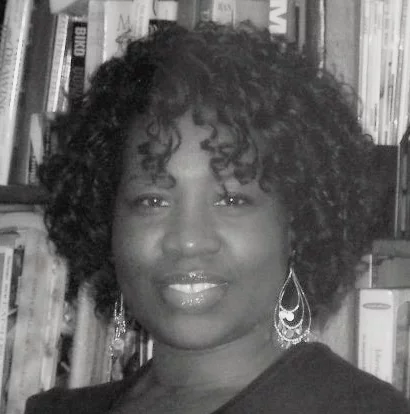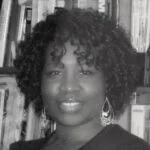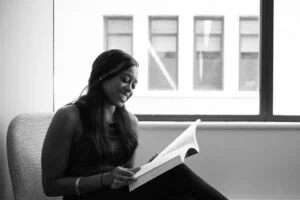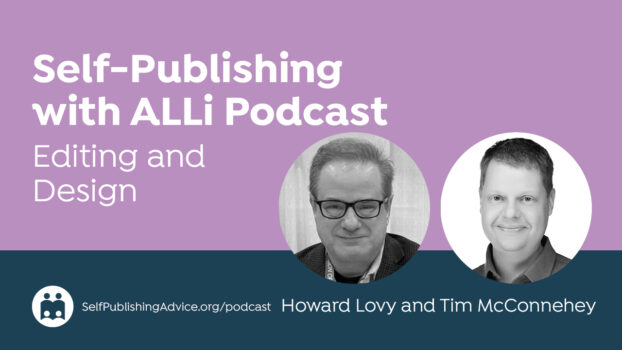Grace Wynter, American writer of women's fiction and romance, sounds the rallying cry for indie authors to be a driving force within the publishing industry for greater diversity in books.
Increasingly, members of the broader writing community are understanding that the publishing industry needs to do a better job of representing diverse voices. Even so, there are still some that don’t understand or care about this push. They feel that the conversation doesn’t, and shouldn’t, involve them. But I believe that it makes both cultural and commercial sense for all of us who love books – both reading and writing them – to support this push for diversity.
“In our real lives, we get to meet people from different genres, races, colours, creeds, sexualities, viewpoints. So why not in our fiction too?” – Deborah Biancotti, co-author of Zeroes
From the Reader's Point of View
Readers seeking diversity want more stories where they are the leading men and women, the love interest, the cop who solves the crime, the geeky girl who gets the guy. We want to read our favorite authors and see characters that are visually and ethnically representative of the world around us. As a young girl reading romance novels (long before I should have been), I remember wondering where the black girls were and asking “Don’t people fall in love with us too?”
Thankfully imprints do exist that depict fiction with leading men and women of color. But in the United States, the publishing industry tends to shelve these titles under the all-encompassing “African American,” category, instead of by genre or trope. This perpetuates the incorrect (and for the authors, financially limiting) assumption that all stories written by black people are the same, and worse, that if you are not African American you will not be interested in them.
The charge for authors who find fault with this way of shelving stories is to read broadly. Get recommendations from friends, pick up titles by authors we may not have read in the past. This might require a bit of effort, but it will be worth it.
“I really hate the word ‘diversity.' It suggests something…other. As if it is something special, or rare. Diversity! As if there is something unusual about telling stories involving women and people of color and LGBTQ characters on TV. I have a different word: normalizing. I'm normalizing TV. I am making TV look like the world looks.” – Shonda Rhimes, Human Rights Campaign Gala speech
From the Writer’s Point of View
Reading widely will help writers write widely, and that, I believe, will help our bottom line. People of color and the LGBTQ community represent a growing market and a changing landscape. As mobile phone use expands in Asia and Africa, so will mobile reading. This expansion represents an amazing opportunity for writers who care about diversity.
As indie authors, we can be at the forefront of the change the publishing industry needs. My hope for diversity in publishing, particularly genre publishing, is to get to a place where a black or Asian or LGBTQ lead in a story is unremarkable and un-newsworthy. Where the race, ethnicity, or sexuality of the protagonist informs the story, but doesn’t drive it. Where diversity is viewed as normalization.
“The single story creates stereotypes, and the problem with stereotypes is not that they are untrue, but that they are incomplete. They make one story become the only story.” Chimamanda Ngozi Adichie
Incorporating Diversity in Your Writing
There are risks involved in portraying characters outside of your own experience. There are often knee-jerk reactions to seeing people of color and/or LGBTQ characters portrayed negatively in books and television. But the remedy for this is to show more diverse characters, not less. Increasing diversity in our books and on television will free flawed characters from the burden of representing entire races, ethnic groups, and religions.
The more we write and portray diverse characters, the more we can successfully present people without fear of stereotyping.
“You don't have a black role, you have an equal role.” Martin Luther King Jr. describing the importance of Nichelle Nichols' groundbreaking role as Star Trek's Uhura.
What Writers Can Do to Promote Diversity
Desiring a more diverse publishing world is about having people who love to read, being able to see their images weaved into the storylines, plots, and scenes of their favorite books. We can promote diversity in publishing by soliciting book recommendations from friends, recommending titles we’ve enjoyed, and leaving reviews on Goodreads, Amazons and other platforms whenever a book has resonated with us.
As story architects and lovers of books, I believe we should be at the forefront of the charge to create an industry where all stories have the right to be told and the opportunity to reach as wide an audience as possible.
OVER TO YOU If you have any great examples of promoting diversity through indie writing, we'd love to hear about them!
RELATED POSTS
- Diversity in Publishing – including a beautiful poem by Dan Holloway
- 5 Steps to Writing Diversity Right – by Yen Ooi
- Interview with Jamaican author Ezekel Alan, winner of the Commonwealth Book Prize Regional Award 2013








[…] Opinion: The Dollars and Sense of Diversity […]
In all my novels (except, I realize, the one about to go to press), I have included characters of different ethnic origins, not because of their colour or religious background, but because I have always had friends of diverse origins. None are the main character, principally because I myself am WASP, but are often friends of the protagonist and contribute to the action. The only negative reaction ever has been Why? Why does the journalist in THE AMAZON’S GIRDLE have to be Afro-American? (He doesn’t, but he is.) Why is the other schoolgirl sleuth olive-skinned and Jewish? (Because her parents are.) It has always felt inappropriate for me to try to create a main protagonist from a background I do not share – principally because when this is done, it so often rings hollow and untrue. But it is quite untrue that WASPs like me are not interested in the lives of other ethnic groups. If the book is good, I want to read it!
That’s great, Elizabeth, I think you’re doing exactly what I’m a fan of: adding diversity to your world. The fact that people ask you why is an indication that not everyone reads as diversely as you do.
As for writing your protagonist as other than what you are, I’m not in a place where I’m ready to do that either, and not sure if I’ll ever be. But I’ll continue to read as widely as I can to support other authors who do.
This is SO good. I want stories that read like my neighborhood, not some gated compound.
[…] Grace Wynter Grace Wynter, American writer of women’s fiction and romance, sounds the rallying cry for […]
Great post, and so important! Thank you for sounding the rallying call. Let’s unite behind a call for more diverse voices – not just in fiction, but everywhere.
Thank you, Amira!
This article hit me hard, and for such a wonderful reason. My Rucksack Universe series is based around people from all over the world—people of color, folks from many different countries, people of all genders, ages, sexual orientations, etc. Writing diversity has been a big priority from day one. I always had a hard time thinking I was writing diversity, though, because from my own travels, a world full of all sorts of people wasn’t novel, it was normal.
Your piece helps me see what was in front of me the whole time—I’m not writing with diversity in mind, I’m writing with normalization in mind. Thank you.
Thanks, Anthony. And thanks for your feedback on the ALLi FB page too!
Brilliant rallying cry. I would like to champion two fabulous projects – Truth Tails (of which ALLi’s Ben Galley is a part) produces children’s books whose protagonists are drawn from groups underrepresented at present, and Sisu Girls, an organisation championing extraordinary women who produce a fabulous set of books featuring strong female protagonists from the sports and adventuring world.
Thanks, Dan!
I’ll definitely check out those projects. In the U.S., We Need Diverse Books is a great project leading the charge.